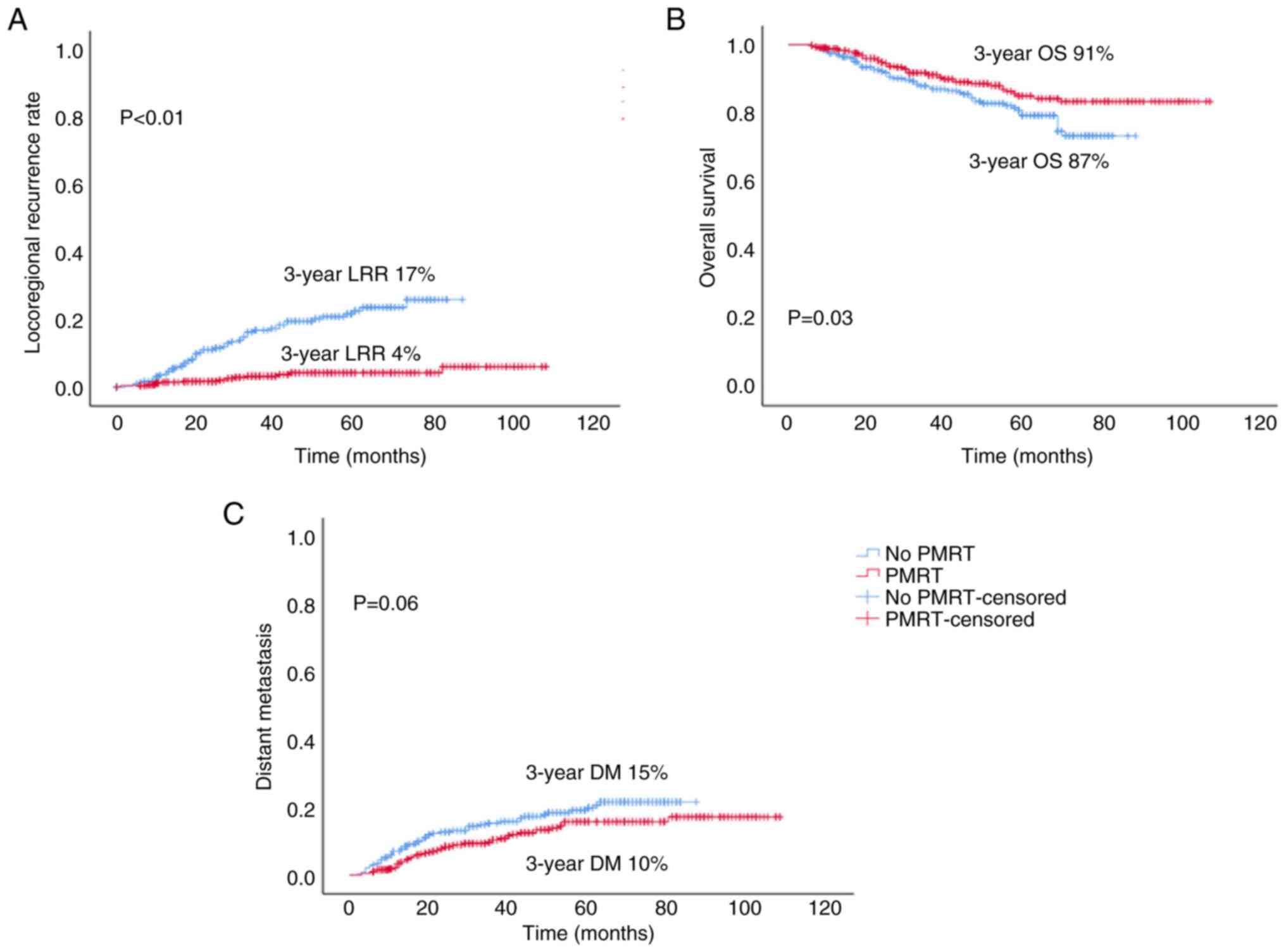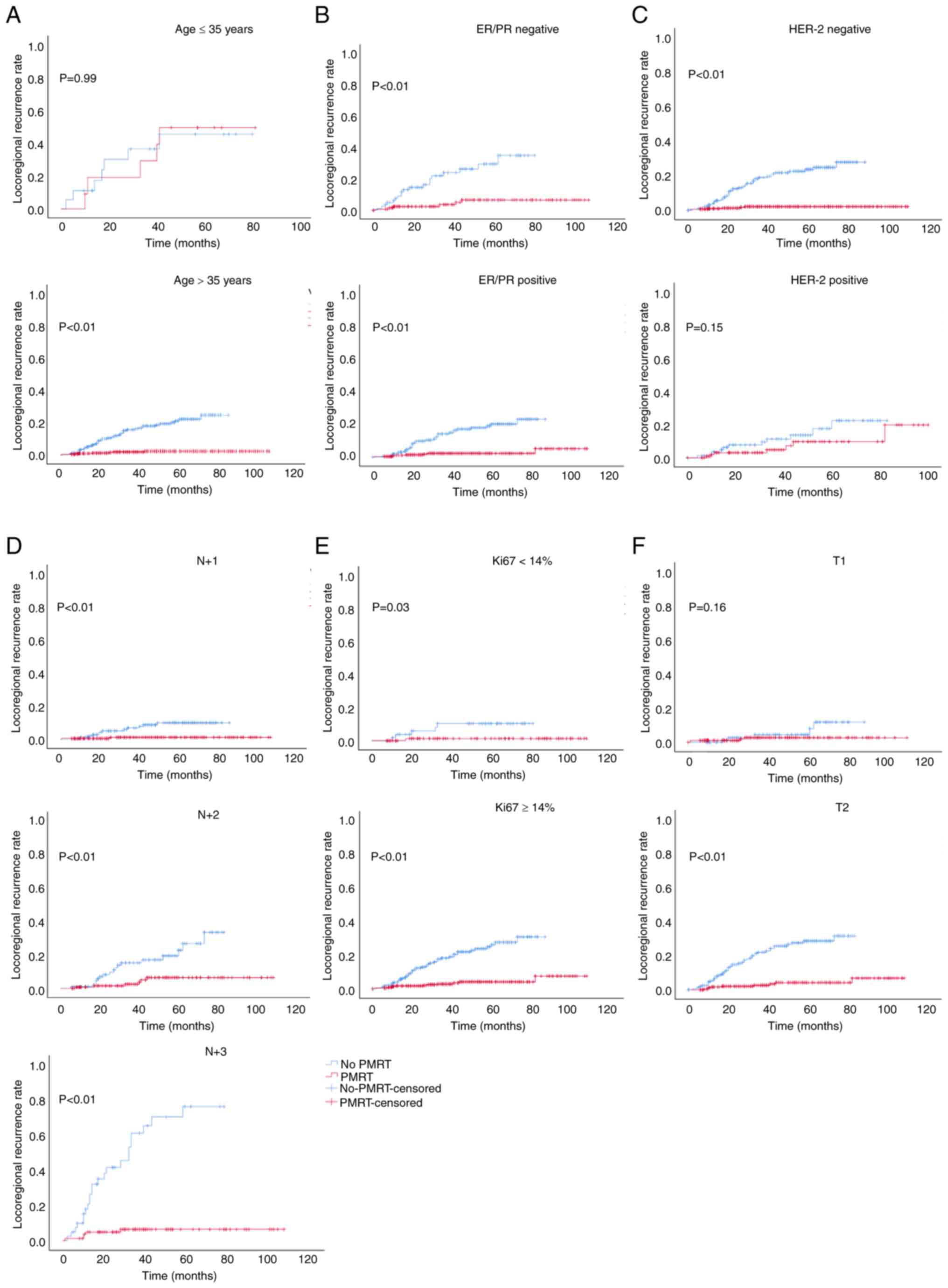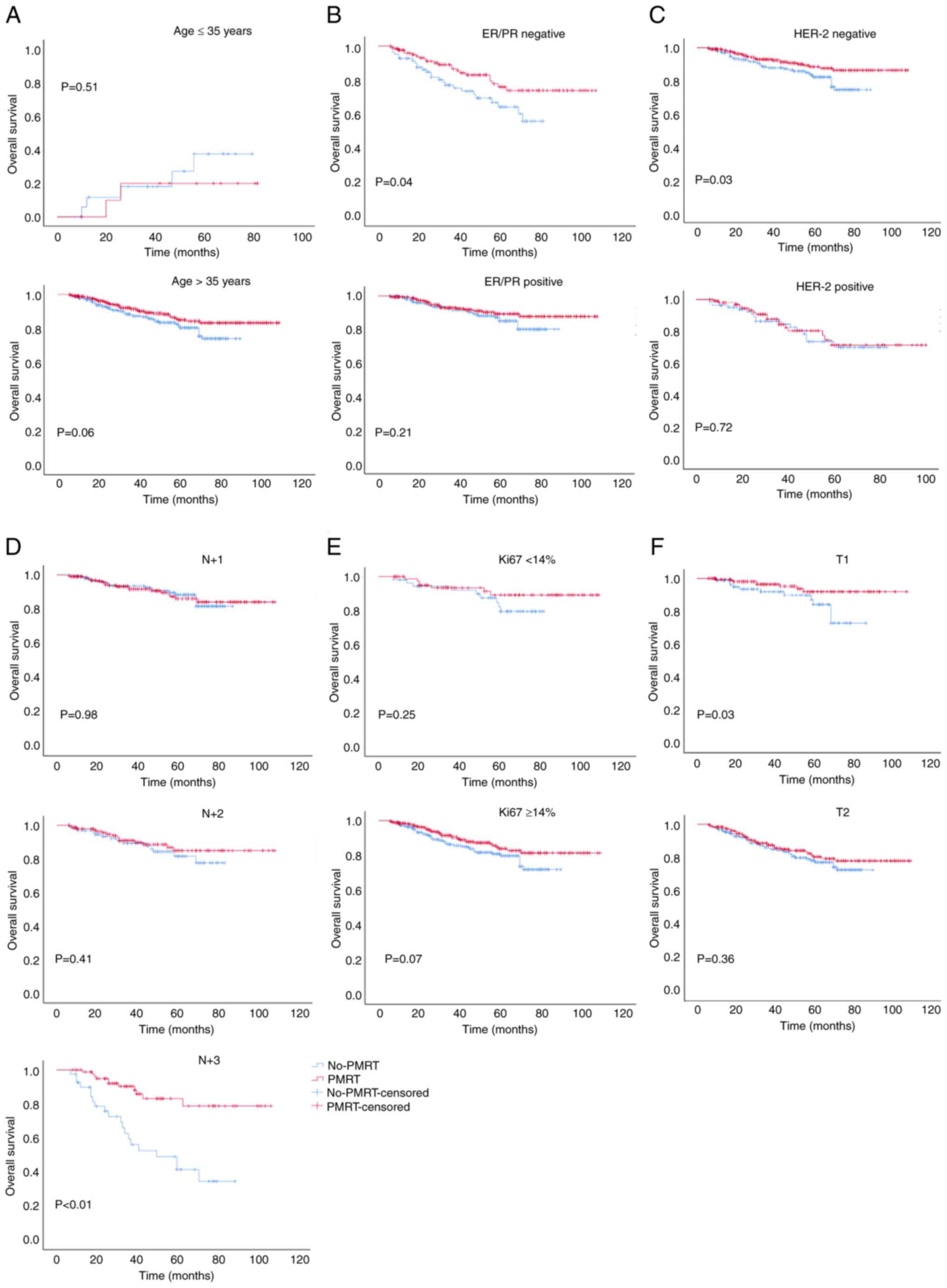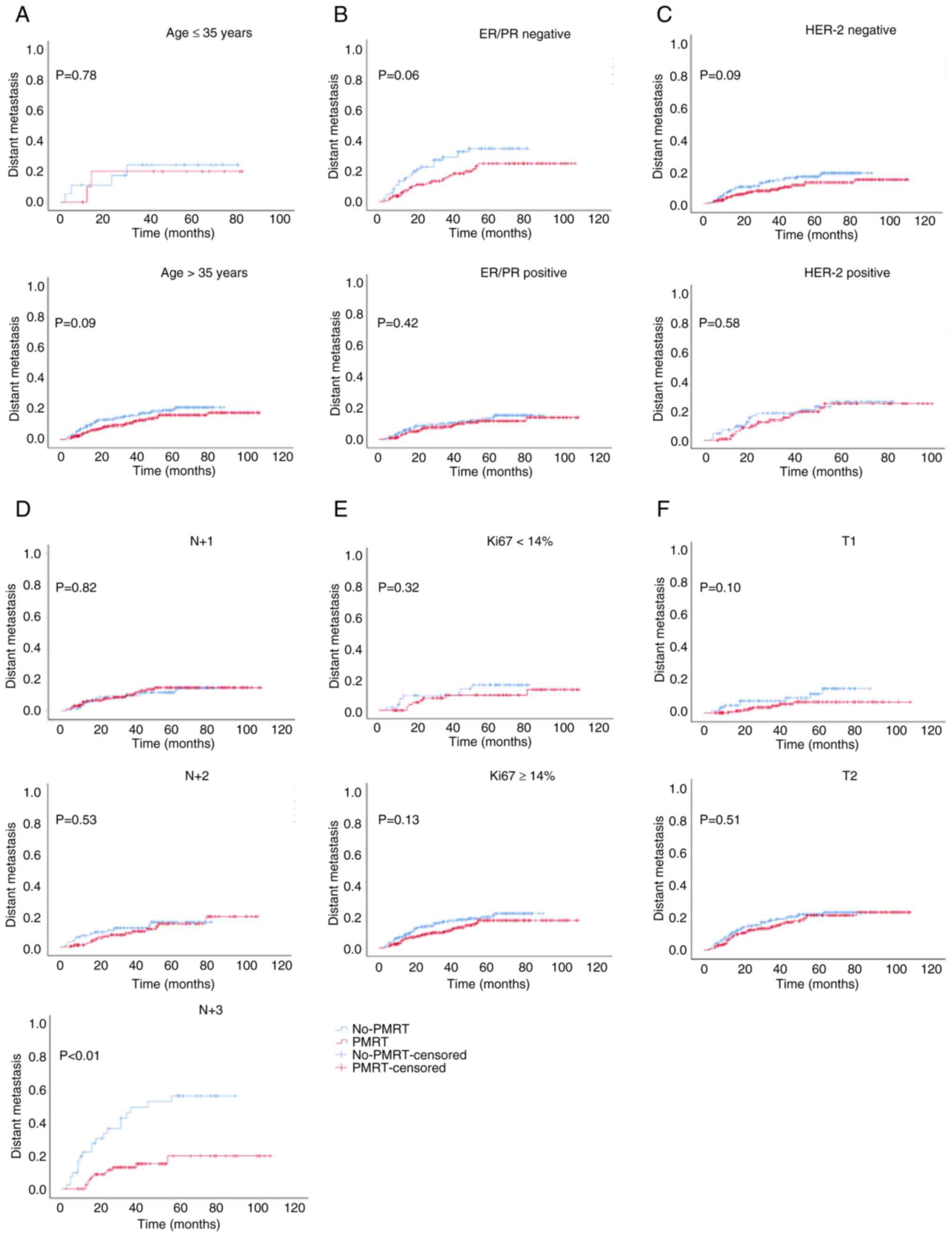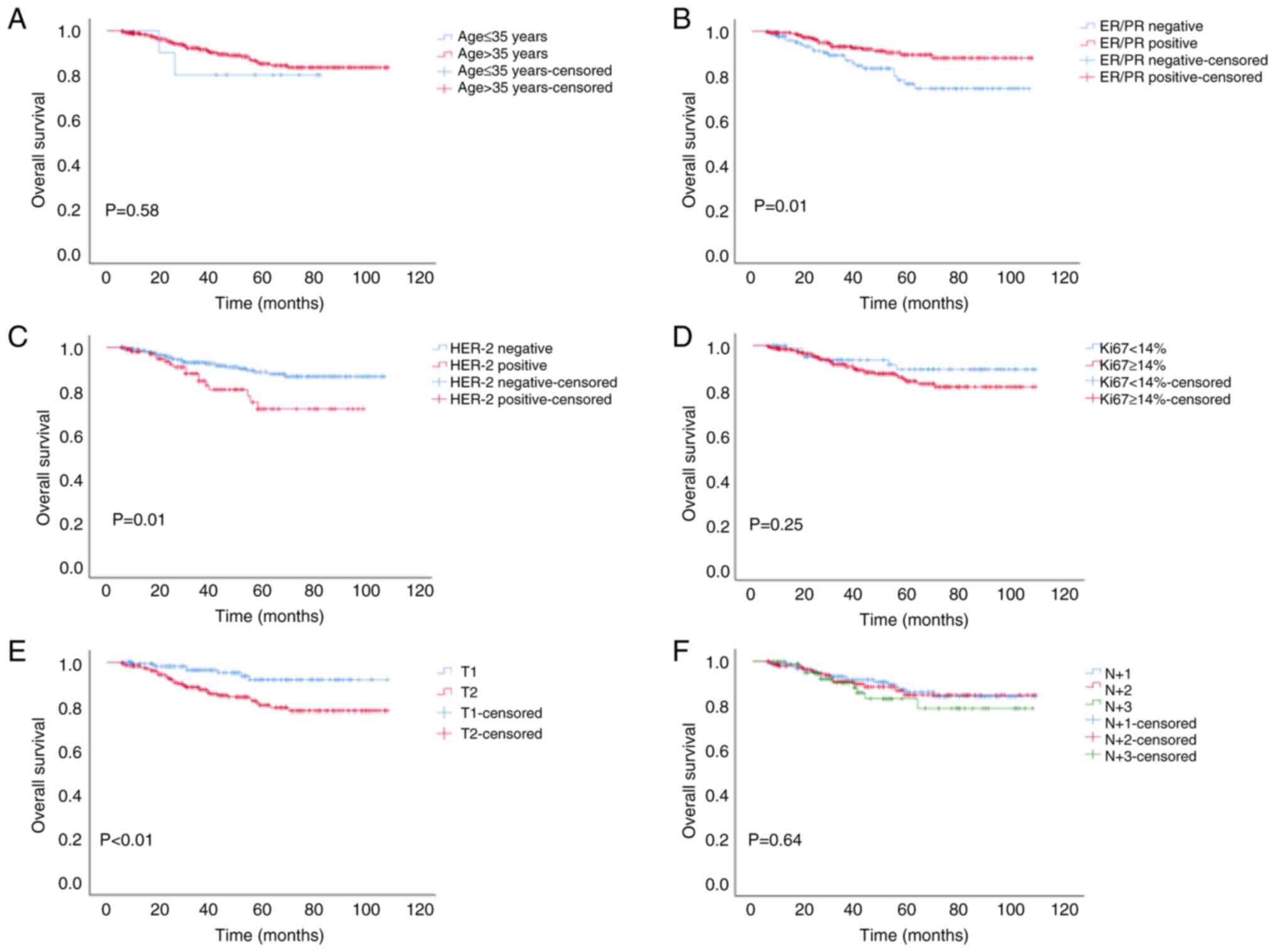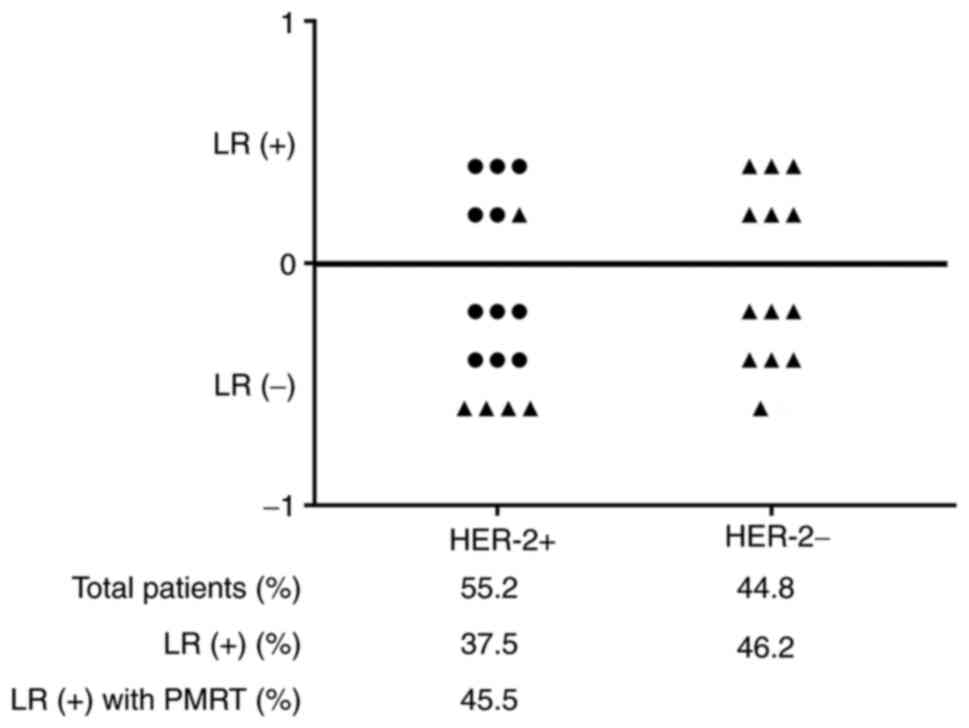|
1
|
Borm KJ, Oechsner M, Combs SE and Duma MN:
Deep-Inspiration breath-hold radiation therapy in breast cancer: A
word of caution on the dose to the axillary lymph node levels. Int
J Radiat Oncol Biol Phys. 100:263–269. 2018.PubMed/NCBI View Article : Google Scholar
|
|
2
|
Fisher B, Anderson S, Bryant J, Margolese
RG, Deutsch M, Fisher ER, Jeong JH and Wolmark N: Twenty-year
follow-up of a randomized trial comparing total mastectomy,
lumpectomy, and lumpectomy plus irradiation for the treatment of
invasive breast cancer. N Engl J Med. 347:1233–1241.
2002.PubMed/NCBI View Article : Google Scholar
|
|
3
|
Truong PT, Olivotto IA, Whelan TJ and
Levine M: Steering Committee on Clinical Practice Guidelines for
the Care and Treatment of Breast Cancer. Clinical practice
guidelines for the care and treatment of breast cancer: 16.
Locoregional post-mastectomy radiotherapy. CMAJ. 170:1263–1273.
2004.PubMed/NCBI View Article : Google Scholar
|
|
4
|
Overgaard M, Hansen PS, Overgaard J, Rose
C, Andersson M, Bach F, Kjaer M, Gadeberg CC, Mouridsen HT, Jensen
MB and Zedeler K: Postoperative radiotherapy in high-risk
premenopausal women with breast cancer who receive adjuvant
chemotherapy Danish breast cancer cooperative Group 82b trial. N
Engl J Med. 337:949–955. 1997.PubMed/NCBI View Article : Google Scholar
|
|
5
|
Atkins CD: Postoperative radiotherapy in
high-risk postmenopausal breast cancer. Lancet. 354(865): author
reply 866. 1999.PubMed/NCBI View Article : Google Scholar
|
|
6
|
Ragaz J, Olivotto IA, Spinelli JJ,
Phillips N, Jackson SM, Wilson KS, Knowling MA, Coppin CM, Weir L,
Gelmon K, et al: Locoregional radiation therapy in patients with
high-risk breast cancer receiving adjuvant chemotherapy: 20-year
results of the British Columbia randomized trial. J Natl Cancer
Inst. 97:116–126. 2005.PubMed/NCBI View Article : Google Scholar
|
|
7
|
EBCTCG (Early Breast Cancer Trialists'
Collaborative Group). McGale P, Taylor C, Correa C, Cutter D, Duane
F, Ewertz M, Gray R, Mannu G, Peto R, et al: Effect of radiotherapy
after mastectomy and axillary surgery on 10-year recurrence and
20-year breast cancer mortality: Meta-analysis of individual
patient data for 8135 women in 22 randomised trials. Lancet.
383:2127–2135. 2014.PubMed/NCBI View Article : Google Scholar
|
|
8
|
Recht A, Comen EA, Fine RE, Fleming GF,
Hardenbergh PH, Ho AY, Hudis CA, Hwang ES, Kirshner JJ, Morrow M,
et al: Postmastectomy radiotherapy: An American society of clinical
oncology, American society for radiation oncology, and society of
surgical oncology focused guideline update. Pract Radiat Oncol.
6:e219–e234. 2016.PubMed/NCBI View Article : Google Scholar
|
|
9
|
McBride A, Allen P, Woodward W, Kim M,
Kuerer HM, Drinka EK, Sahin A, Strom EA, Buzdar A, Valero V, et al:
Locoregional recurrence risk for patients with T1,2 breast cancer
with 1-3 positive lymph nodes treated with mastectomy and systemic
treatment. Int J Radiat Oncol Biol Phys. 89:392–398.
2014.PubMed/NCBI View Article : Google Scholar
|
|
10
|
Zhang N, Zhang J, Zhang H, Liu Y, Zhao W,
Wang L, Chen B, Moran MS, Haffty BG and Yang Q: Individualized
prediction of survival benefit from postmastectomy radiotherapy for
patients with breast cancer with one to three positive axillary
lymph nodes. Oncologist. 24:e1286–e1293. 2019.PubMed/NCBI View Article : Google Scholar
|
|
11
|
Gradishar WJ, Anderson BO, Abraham J, Aft
R, Agnese D, Allison KH, Blair SL, Burstein HJ, Dang C, Elias AD,
et al: Breast cancer, version 3.2020, NCCN clinical practice
guidelines in oncology. J Natl Compr Canc Netw. 18:452–478.
2020.PubMed/NCBI View Article : Google Scholar
|
|
12
|
Goldhirsch A, Wood WC, Coates AS, Gelber
RD, Thürlimann B and Senn HJ: Panel members. Strategies for
subtypes-dealing with the diversity of breast cancer: Highlights of
the St. Gallen International expert consensus on the primary
therapy of early breast cancer. Ann Oncol. 22:1736–1747.
2011.PubMed/NCBI View Article : Google Scholar
|
|
13
|
Stuart-Harris R, Caldas C, Pinder SE and
Pharoah P: Proliferation markers and survival in early breast
cancer: A systematic review and meta-analysis of 85 studies in
32,825 patients. Breast. 17:323–334. 2008.PubMed/NCBI View Article : Google Scholar
|
|
14
|
Wolff AC, Hammond ME, Hicks DG, Dowsett M,
McShane LM, Allison KH, Allred DC, Bartlett JM, Bilous M,
Fitzgibbons P, et al: Recommendations for human epidermal growth
factor receptor 2 testing in breast cancer: American Society of
Clinical Oncology/College of American Pathologists clinical
practice guideline update. J Clin Oncol. 31:3997–4013.
2013.PubMed/NCBI View Article : Google Scholar
|
|
15
|
Inwald EC, Klinkhammer-Schalke M,
Hofstädter F, Zeman F, Koller M, Gerstenhauer M and Ortmann O:
Ki-67 is a prognostic parameter in breast cancer patients: Results
of a large population-based cohort of a cancer registry. Breast
Cancer Res Treat. 139:539–552. 2013.PubMed/NCBI View Article : Google Scholar
|
|
16
|
Lin L, Hu P, Shi J, Appleton CM, Maslov K,
Li L, Zhang R and Wang LV: Single-breath-hold photoacoustic
computed tomography of the breast. Nat Commun.
9(2352)2018.PubMed/NCBI View Article : Google Scholar
|
|
17
|
Chen LJ and Chang YJ and Chang YJ:
Treatment and long-term outcome of breast cancer in very young
women: Nationwide population-based study. BJS Open.
5(zrab087)2021.PubMed/NCBI View Article : Google Scholar
|
|
18
|
Francis PA: Optimal adjuvant therapy for
very young breast cancer patients. Breast. 20:297–302.
2011.PubMed/NCBI View Article : Google Scholar
|
|
19
|
Kroman N, Jensen MB, Wohlfahrt J,
Mouridsen HT, Andersen PK and Melbye M: Factors influencing the
effect of age on prognosis in breast cancer: Population based
study. BMJ. 320:474–478. 2000.PubMed/NCBI View Article : Google Scholar
|
|
20
|
Ahn SH, Son BH, Kim SW, Kim SI, Jeong J,
Ko SS and Han W: Korean Breast Cancer Society. Poor outcome of
hormone receptor-positive breast cancer at very young age is due to
tamoxifen resistance: Nationwide survival data in Korea-a report
from the Korean Breast Cancer Society. J Clin Oncol. 25:2360–2368.
2007.PubMed/NCBI View Article : Google Scholar
|
|
21
|
Hrynchak I, Santos L, Falcão A, Gomes CM
and Abrunhosa AJ: Nanobody-Based theranostic agents for
HER2-Positive breast cancer: Radiolabeling strategies. Int J Mol
Sci. 22(10745)2021.PubMed/NCBI View Article : Google Scholar
|
|
22
|
Hagio K, Hatanaka KC, Amano T, Matsuno Y,
Hatanaka Y and Yamashita H: Genetic heterogeneity during breast
cancer progression in young patients. Breast. 60:206–213.
2021.PubMed/NCBI View Article : Google Scholar
|
|
23
|
Schapira L, Zheng Y, Gelber SI, Poorvu P,
Ruddy KJ, Tamimi RM, Peppercorn J, Come SE, Borges VF, Partridge AH
and Rosenberg SM: Trajectories of fear of cancer recurrence in
young breast cancer survivors. Cancer. 128:335–343. 2022.PubMed/NCBI View Article : Google Scholar
|
|
24
|
Bajpai J, Ventrapati P, Joshi S,
Wadasadawala T, Rath S, Pathak R, Nandhana R, Mohanty S, Chougle Q,
Engineer M, et al: Unique challenges and outcomes of young women
with breast cancers from a tertiary care cancer centre in India.
Breast. 60:177–184. 2021.PubMed/NCBI View Article : Google Scholar
|















